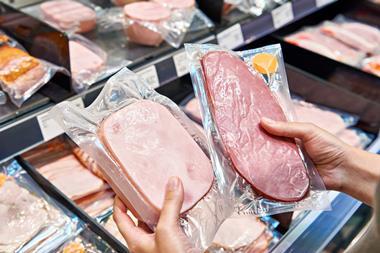The Food Standards Agency has defended its decision to impose a controversial moratorium on desinewed meat, saying the UK faced “catastrophic” trade penalties from Brussels that would have thrown the British meat industry into turmoil.
Giving evidence to a committee of MPs this week, chief executive Tim Smith and Jeff Rooker insisted they had not failed to protect UK interests by agreeing to the moratorium, which put a stop to the production of desinewed meat in the UK at just five days’ notice in April and has led to redundancies at a number of meat companies.
“We were appalled at the severity and the pace with which they wanted us to take this action,” Smith told the Environment, Food & Rural Affairs committee. But he stressed the UK was given a “very straightforward binary choice” by the European Commission – “to impose an immediate ban five days later or to face safeguarding measures, which effectively would have put the UK meat industry into complete turmoil and financial meltdown”.
The FSA had tried to reason with the EC to persuade it of its view that desinewed meat should not be classified as mechanically separated meat, but had been met with a “stonewall response”, Smith said.
Rooker said he was supporter of the European Union generally but claimed the Commission’s stance on desinewed meat was “almost a ‘straight bananas’ issue”.
“This is meat – it is not mechanically separated meat or mechanically recovered meat,” he said. “It’s not a puree – it’s meat that we get off a carcass that hasn’t been interfered with.”
During a lively exchange with the committee, Smith and Rooker were accused by MPs of not doing enough to defend the interests of UK industry and “rolling over” in response to European demands. They were also asked why they had not alerted ministers earlier to the potential risks to UK interests.
But Smith and Rooker insisted they were doing all they could to stand up for UK interests and would continue to push an “evidence and science-based case” in Brussels. They said the issue of desinewed meat had simply not been on the radar before coming to a head in April.
“During my time with the agency I’ve asked more about in vitro production of meats in laboratories than I’ve asked about this,” Rooker said. “This wasn’t on the radar.”



















1 Readers' comment